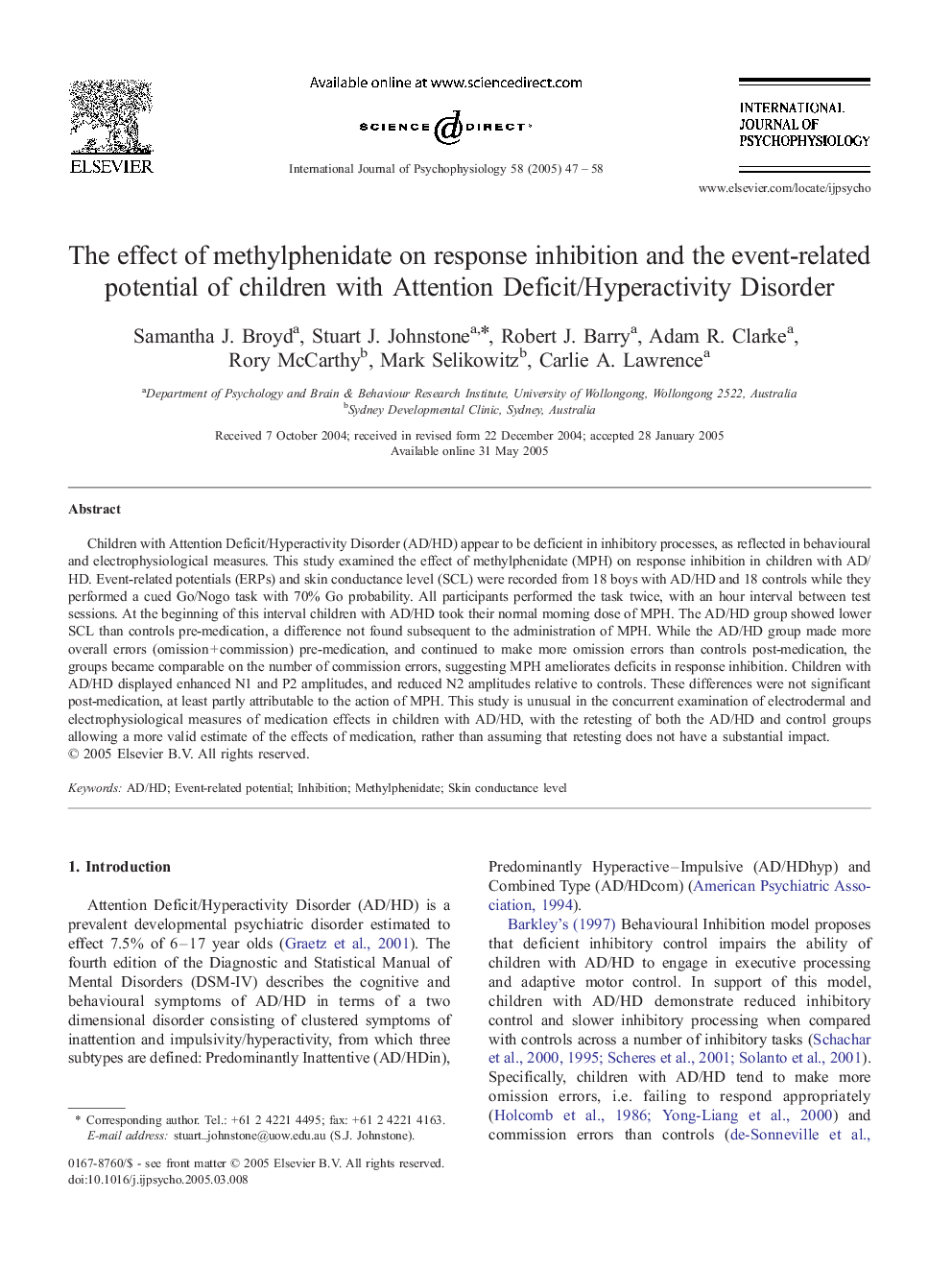| Article ID | Journal | Published Year | Pages | File Type |
|---|---|---|---|---|
| 9722597 | International Journal of Psychophysiology | 2005 | 12 Pages |
Abstract
Children with Attention Deficit/Hyperactivity Disorder (AD/HD) appear to be deficient in inhibitory processes, as reflected in behavioural and electrophysiological measures. This study examined the effect of methylphenidate (MPH) on response inhibition in children with AD/HD. Event-related potentials (ERPs) and skin conductance level (SCL) were recorded from 18 boys with AD/HD and 18 controls while they performed a cued Go/Nogo task with 70% Go probability. All participants performed the task twice, with an hour interval between test sessions. At the beginning of this interval children with AD/HD took their normal morning dose of MPH. The AD/HD group showed lower SCL than controls pre-medication, a difference not found subsequent to the administration of MPH. While the AD/HD group made more overall errors (omission + commission) pre-medication, and continued to make more omission errors than controls post-medication, the groups became comparable on the number of commission errors, suggesting MPH ameliorates deficits in response inhibition. Children with AD/HD displayed enhanced N1 and P2 amplitudes, and reduced N2 amplitudes relative to controls. These differences were not significant post-medication, at least partly attributable to the action of MPH. This study is unusual in the concurrent examination of electrodermal and electrophysiological measures of medication effects in children with AD/HD, with the retesting of both the AD/HD and control groups allowing a more valid estimate of the effects of medication, rather than assuming that retesting does not have a substantial impact.
Related Topics
Life Sciences
Neuroscience
Behavioral Neuroscience
Authors
Samantha J. Broyd, Stuart J. Johnstone, Robert J. Barry, Adam R. Clarke, Rory McCarthy, Mark Selikowitz, Carlie A. Lawrence,
